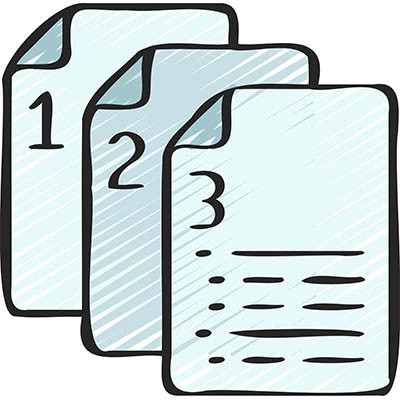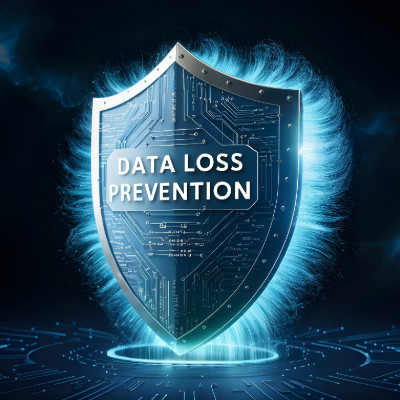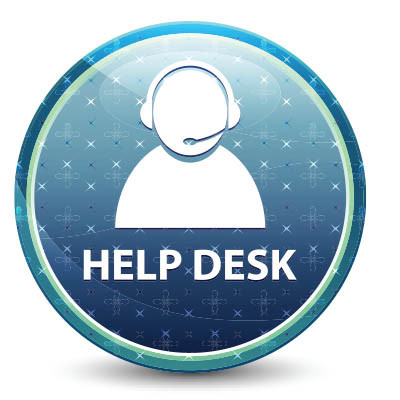There are times when you might make changes to a file, only to wish to revert back to the previous version. Sometimes you’ll accidentally overwrite an important existing file, and sometimes someone else will make edits to a document without permission. All of these situations warrant version control, or having the ability to view different iterations of a file. Here’s why you need to have version control in place, as well as what’s at stake if you don’t have it turned on.
Datalyst Blog
You know your business needs data backup, but do you understand why? Simply put, your business is at risk of total annihilation if it doesn’t have a plan in place to recover lost data, and you don’t want that impending doom hanging over your head. If you’re wondering where to get started, here are three types of data that you should absolutely prioritize with your backups.
That said, you want to back up all data if you can, but these are three that we think are especially important to consider.
The sun is setting on an era. On October 14, 2025, Windows 10 will officially reach its end of support. For millions of users worldwide, this marks a significant turning point, prompting questions, concerns, and perhaps a touch of nostalgia for an operating system that has served faithfully for a decade.
So, what exactly does end of support mean, and what should you be doing now to prepare? Let's dive in.
Let me ask you something… Do you know just how much IT downtime costs? For SMBs, it’s typically between $427 to over EIGHT GRAND an hour. Imagine your whole workforce just chillin' because the Internet's down, meanwhile deadlines are getting missed, customers are getting ticked off, and opportunities are disappearing. That's a nightmare, man.
This is why you need to do what you need to do to keep your business up and running.
Real talk: does running your business feel less like you’re crushing it and more like you’re the unpaid, stressed-out IT guy? One second you're closing deals, the next your whole system crashes and you're stuck on a support forum trying to figure out what a "DNS propagation error" is. I can easily say, that’s not the vibe you’re looking for.
It's the quiet of the early hours, long after the workday should have ended, but for many non-technical business owners, this is prime time for a different kind of work: worrying.
If you've found yourself staring at the ceiling, anxieties about technology swirling in your head, you're not alone. Welcome to the "2 AM Club"—a place no business owner wants to be, yet many find themselves regulars.
Your IT strategy shouldn’t just be an afterthought; it's a critical component of your success. But can generic IT advice genuinely address your specific business demands in Plymouth County and beyond?
We believe in a new approach. We're more than just another IT provider; we're a local, expert partner who understands your sector and the Southern New England business landscape.
The way many businesses handle their IT budgets is fundamentally broken. With global IT spending projected to hit $5.61 trillion in 2025, its importance is undeniable. Yet, too often, IT is treated as a mere "cost center"—a necessary evil whose budget needs constant trimming. This isn't just outdated accounting; it's a strategic blunder that stifles innovation, increases risk, and holds your business back.
It's time to shift perspective. Your IT budget isn't just an expense; it's a powerful investment that can drive growth, efficiency, and competitive advantage. The problem isn't just how much you spend, but how you spend it.
Here’s how to fix your approach:
Is Your Business Tech Ready for Tomorrow? The Power of a Strategic IT Partner and Technology Roadmap
Running a small or medium-sized business in Plymouth County, Massachusetts, keeps you busy. You're focused on serving your customers, managing your team, and growing your bottom line. But, in today's fast-paced digital world, is your technology keeping up? Ignoring your IT's future could be a risk you can't afford.
Throughout the workday, you’re likely juggling a multitude of responsibilities, from strategic planning to ensuring smooth day-to-day operations. Let’s face facts here: technology underpins nearly every aspect of your business… but what happens when that technology falters?
Reactive fixes can be costly, disruptive, and ultimately hinder your growth. This is where the power of proactive business technology support truly shines.
There are plenty of reasons why a business might lose some or all of its data, ranging from cyberattacks to hardware failure. Unfortunately, there isn’t any real reason your business won’t be one of the unlucky ones.
This makes it imperative that you prepare for this eventuality. Let’s discuss how to do so with the help of data redundancy.
Over the last few years, we’ve seen some very significant price increases for computing hardware. Back in 2011, major floods in Thailand caused a hard drive shortage and caused prices to shoot upwards. At the start of the COVID-19 pandemic, work-from-home peripherals like webcams, headsets, and docking stations were sometimes hard to get and sold at a premium. When the crypto world started buying entire data centers of Nvidia GPUs, the cost of high-end PCs and gaming PCs started to skyrocket.
2025 in particular is going to be an interesting year when it comes to the cost of typical office hardware, and experts are urging that business owners get ahead of the game to avoid exceeding their projected budget.
I’m about to state the obvious here, but when it comes to running a small business, anything that costs money is probably going to feel like an expense.
That’s obviously the definition of expense, but hear me out, we’re talking about feelings. Particularly, we’re talking about that gut feeling that business owners get when they have to sign a check.
Occasionally, the money you spend will feel more like an investment; when you feel like this is going to help move the business forward.
For many small business owners, IT is often seen as just another expense—something that’s necessary but not necessarily a driver of growth or profit.
But what if we told you that investing in managed IT services isn’t just about keeping the lights on—it’s about making your business more efficient, secure, and profitable?
So, what’s the real return on investment (ROI) of managed IT services? Let’s break it down.
Tech can be a real pain for small businesses, especially if you don’t have a dedicated IT person handling everything. Most businesses have someone who sort of knows their way around tech, but for a small team, that’s a lot to put on one person. That’s where managed IT services come in. It’s used not just for its convenience but because it actually makes a business owner’s life easier in ways they might not even realize.
Brockton MA: IT Consulting Services Overview
In Brockton, MA, IT consulting services are transforming small and medium-sized businesses. An IT consultant can get you the typical IT services a business needs like computer support, IT and network management, as well as cybersecurity, but can go much further to help your organization leverage technology to drive business growth and efficiency.
Whether you're a small business owner or a decision-maker in a larger organization, making smart decisions when it comes to your technology is important; it can be the difference between staying competitive or falling behind.
Planning your IT budget for 2025 is a crucial task. It requires strategic foresight and a keen understanding of technological trends.
This guide aims to help you navigate this process. It will provide insights into key areas such as software costs, hardware expenses, and cybersecurity.
We'll also delve into the implications of Windows' End-Of-Life (EOL) and the importance of regular upgrades.
By the end, you'll be equipped with actionable strategies for effective IT budget planning in 2025. Let's get started.
Newton, Massachusetts is a very tech-forward city. Businesses don’t just rely on IT to do business, they rely on it to stay competitive. Solid and stable IT can make all the difference when it comes to growing, operating efficiently, and even retaining employees.
Not only is it critical to ensure that your IT is properly maintained so that it works effectively, but businesses need to utilize modern technology properly so that they don’t get left behind.
Nobody likes getting large support bills from technology companies—especially when they are unexpected. This is the case for both the business owners footing the bill and the employees who might be held responsible for racking up the bill in the first place. This puts SMBs in a bit of an impossible situation; either spend money to keep employees productive, or save money and suffer from productivity issues.




















